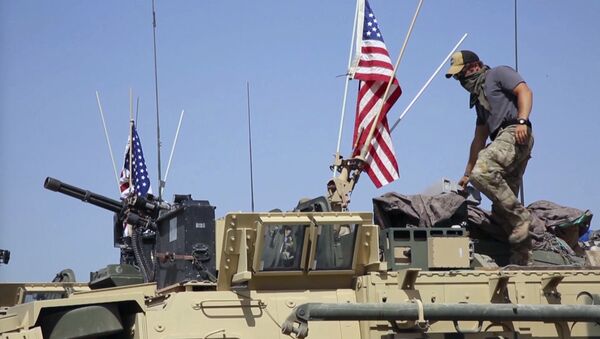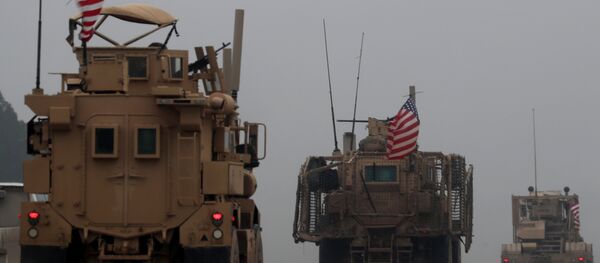In December, US President Donald Trump announced that the United States would withdraw its roughly 2,000 troops from Syria since Daesh* had been defeated in the country. Media then reported that Trump had decided on the troops' pullout only after being assured by Erdogan that Ankara would clear Syria of remaining Daesh militants.
READ MORE: Erdogan, Trump Discuss Creation of Security Zone in N Syria — Turkish Official
The US troops' removal from Syria raised the issue of the fate of the US-backed Kurdish militias in the region, which are viewed by neighboring Turkey as an affiliate of the Kurdistan Workers’ Party (PKK), listed as a terrorist organization by Ankara, bringing even more tensions to the region.
Turkey vs. Kurds
According to Afandi, one of the most delicate subjects related to the withdrawal of the US troops from Syria is the possible handover of the US military bases, with the Turkish forces and Kurdish militants being the two candidates to inherit them.
"The decision of Washington to withdraw troops complicates the situation in Syria because it basically strikes Turks and Kurds together. The most sensitive issue related to the withdrawal is the future of the American military bases in northern Syria, on the border with Turkey. The main three bases are in Kobani, Rmelan and Sarrin – all on the border with Turkey. When the troops leave, to whom are they going to hand over these bases – to Turkey or to Kurds?" Afandi said.
READ MORE: US Pullout From Syria Not to Alter Capacity to Perform Military Actions — Pompeo
Afandi indicated that both Turkey and Kurds as potential inheritors of the US military bases were likely to create problems for Washington in the political arena.
"Giving [military bases] to Turkey basically means giving it in the hands of the armed opposition, and, thus, triggering confrontation with Russia, one of the guarantors [of the Syrian ceasefire]. Giving it to Kurds would trigger confrontation with Turkey. None of this looks feasible, that is why I think that Americans will leave some contingent in these northern bases even after the troops’ withdrawal," Afandi continued.
Possible Secret Scenarios
Shortly after, US National Security Adviser John Bolton paid a visit to Turkey during which the issue of the US forces' withdrawal from Syria was raised. Bolton reiterated that Trump had asked Turkish leader Recep Tayyip Erdogan to be particularly careful about those Kurds who were involved in fighting terrorists in Syria in one row with the United States.
"In general, it aggravates the situation, and it could have been done on purpose, because the United States does not seek an end to this conflict," Afandi said.
Following the announcement of the US troops withdrawal, the Turkish leadership decided to postpone its planned offensive against Kurds in Syria's north until the complete pullout of the US forces. However, the step has not brought Ankara and Washington to a consensus regarding the Kurds position within the Syrian campaign, with the leadership of the two countries exchanging threats regarding the future developments in Syria. In the most recent case, the US president pledged to "devastate Turkey economically" if Turkey hit Kurds.
*Daesh [IS, ISIL, Islamic State] — a terrorist organisation banned in Russia
The views and opinions expressed by the expert do not necessarily reflect those of Sputnik.


